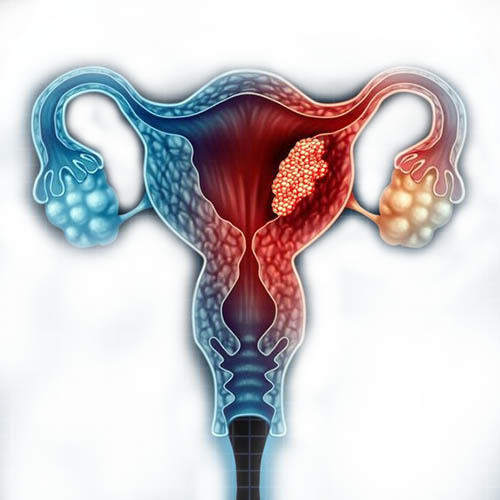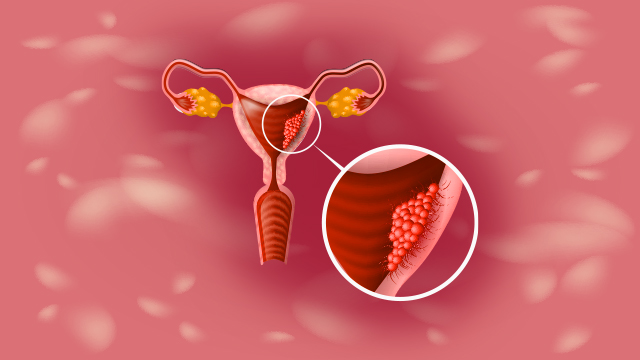What Causes Endometrial Cancer?
The exact causes of endometrial cancer that occur due to abnormal growth of cells in the endometrium are yet to be clear. However, certain health conditions, lifestyle choices, and other environmental factors may pose as high-risk factors.
Certainly! Here’s a breakdown of the causes of endometrial cancer using the provided information:

Cellular Changes:( DNA change )
Endometrial cancer begins with changes in the DNA of cells in the endometrium, the lining of the uterus. These changes instruct the cells to multiply rapidly and continue living beyond their natural life cycle, accumulating extra cells.

Lifestyle choices
Lifestyle choices, such as obesity, lack of physical activity, and hormone therapy, can increase the risk of developing endometrial cancer.

Factors Contributing to DNA Changes:
It is believed to result from a combination of factors, including hormonal imbalances, genetic mutations, and environmental influences.

Certain Health Conditions
Certain health conditions, such as polycystic ovary syndrome (PCOS), diabetes, and high blood pressure, can also increase the risk of developing endometrial cancer.

How Can Endometrial Cancer Be Prevented?
While there is no definitive way to prevent endometrial cancer, several lifestyle choices and risk-reduction strategies can help lower the likelihood of its development. Here are some preventive measures:
Maintain a Healthy Weight
Being overweight or obese increases the risk of endometrial cancer. Maintaining a healthy weight through diet and exercise can lower this risk.Physical Activity
Regular physical activity can help reduce the risk of endometrial cancer. Aim for at least 30 minutes of moderate exercise most days of the week.Hormone Replacement Therapy (HRT)
Long-term use of estrogen-only hormone replacement therapy (HRT) can increase the risk of endometrial cancer. If HRT is necessary, combining estrogen with progesterone can lower this riskBirth Control Pills
Oral contraceptives can reduce the risk of endometrial cancer, especially with long-term use.Pregnancy and Breastfeeding
Women who have been pregnant and breastfed have a lower risk of endometrial cancer.Diabetes Management
Managing diabetes through diet, exercise, and medication can help lower the risk of endometrial cancer.Healthy Diet
A diet rich in fruits, vegetables, whole grains, and lean proteins may help reduce the risk of endometrial cancer.Limit Alcohol Consumption
Alcohol consumption is linked to an increased risk of endometrial cancer. Limiting alcohol intake can help reduce this risk.Quit Smoking
Smoking has been linked to an increased risk of endometrial cancer. Quitting smoking can lower this risk.Regular Check-ups and Screenings
Regular visits to your healthcare provider for check-ups and screenings can help detect any potential issues early.Genetic Counseling
If you have a family history of endometrial cancer or other hereditary cancer syndromes, genetic counseling can help assess your risk and provide guidance on preventive measures.Conclusion
It is important to note that while these strategies may help reduce the risk of Endometrial cancer, they are not a guarantee, and Concerned person should still talk to their doctor about their individual risk factors and appropriate screening and prevention strategies.
If you have any of these cancer symptoms, take Ayurveda treatment, and it will help reduce the cause of the disease and help you come out of cancer. For this, consider the Best cancer hospital in Hyderabad Punarjan Clinic.
Disclaimer
This information on this article is not intended to be a substitute for professional medical advice, diagnosis or treatment. All content in this site contained through this Web site is for general information purposes only.

Book An Appointment
Please reach out to us to schedule your appointment. Your well-being is our priority.

